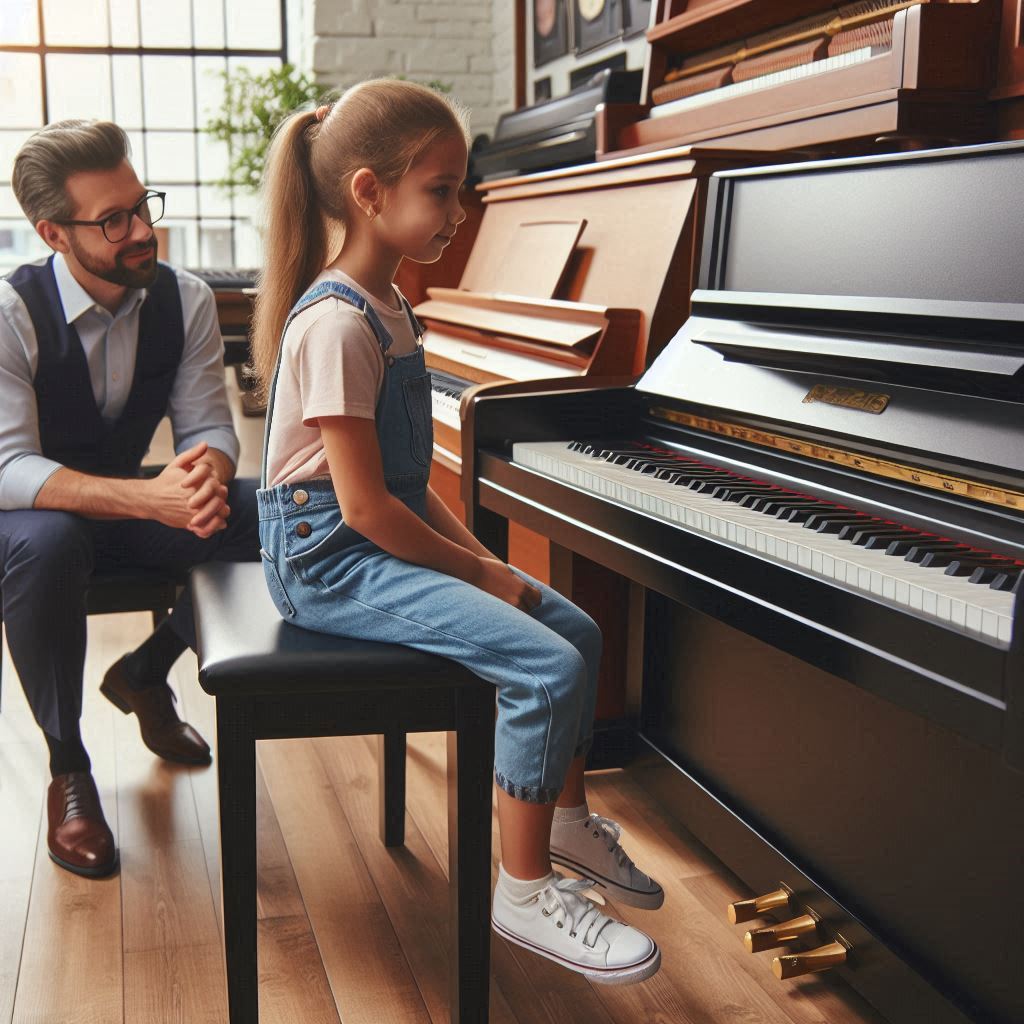Introduction
Choosing the right piano is a significant decision, whether you’re a beginner or an experienced musician. With so many options available, from acoustic grands to digital uprights, finding the perfect instrument can feel overwhelming. This guide aims to simplify the process by exploring the various types of pianos, key considerations, and practical tips to help you make an informed choice.
Understanding the Different Types of Pianos
Acoustic Pianos
Grand Pianos
Grand pianos are known for their rich sound and responsive touch. They come in various sizes, from baby grands to concert grands, each offering unique acoustic qualities. These pianos are ideal for serious pianists and professional settings.
Upright Pianos
Upright pianos, or vertical pianos, are more compact than grands, making them suitable for smaller spaces. Despite their size, they can deliver excellent sound quality and are popular in homes and schools.
Digital Pianos
Advantages of Digital Pianos
Digital pianos offer numerous benefits, including portability, volume control, and a variety of sound options. They are often more affordable and require less maintenance than acoustic pianos.
Key Features to Consider
When choosing a digital piano, consider factors like key action, sound quality, polyphony, and connectivity options. High-quality digital pianos aim to replicate the feel and sound of an acoustic piano.
Key Considerations When Choosing a Piano
Skill Level
Beginners
For beginners, a good-quality digital piano or an entry-level upright can provide an excellent starting point. Look for instruments with weighted keys and realistic sound to help develop proper technique.
Intermediate and Advanced Players
More experienced players might prefer an acoustic piano, such as an upright or grand, to fully explore their musical potential. These pianos offer greater dynamic range and expressive capabilities.
Space and Placement
Room Size
Consider the size of the room where the piano will be placed. Grand pianos require more space and a suitable acoustic environment, while upright and digital pianos are more adaptable to smaller rooms.
Acoustic Considerations
Acoustic pianos can be affected by room acoustics. Ensure the room has proper acoustics to enhance the piano’s sound. Digital pianos are less affected by room acoustics, offering more flexibility in placement.
Budget
Setting a Realistic Budget
Pianos come in a wide range of prices. Set a budget that considers not only the purchase price but also potential maintenance costs. Digital pianos generally offer more features at lower prices compared to acoustic pianos.
Financing Options
Many retailers offer financing plans, making it easier to afford a high-quality instrument. Explore financing options and consider purchasing a used piano to save money without compromising quality.
Trying Out Pianos
In-Store Testing
What to Look For
When testing pianos in-store, pay attention to the touch and feel of the keys, the responsiveness of the action, and the overall sound quality. Play a variety of pieces to see how the piano handles different dynamics and styles.
Asking the Right Questions
Ask the salesperson about the piano’s maintenance history, warranty, and any additional services they offer. Understanding the instrument’s background and support options can help you make a more informed decision.
Online Research and Reviews
Reading Reviews
Online reviews can provide valuable insights into the performance and reliability of different piano models. Look for reviews from trusted sources and fellow musicians to get a balanced perspective.
Watching Video Demonstrations
Video demonstrations can give you a sense of how a piano sounds and performs. Many retailers and enthusiasts post detailed videos that can help you compare different models and features.
Maintenance and Care
Acoustic Piano Maintenance
Tuning and Regulation
Acoustic pianos require regular tuning, typically every six months to a year, to maintain their sound quality. Regulation and voicing are also important to keep the action and tone in optimal condition.
Environmental Considerations
Keep your piano in a stable environment with controlled humidity and temperature to prevent damage. Use a humidifier or dehumidifier if necessary to protect your investment.
Digital Piano Care
Cleaning and Upkeep
Digital pianos are low-maintenance but still require regular cleaning. Dust the keys and surfaces regularly, and keep the piano away from direct sunlight and extreme temperatures.
Software Updates
Many digital pianos come with software that can be updated to improve performance and add new features. Check for updates regularly to ensure your piano stays current.
FAQs
What is the best type of piano for beginners?
A good-quality digital piano or an entry-level upright is ideal for beginners. Look for weighted keys and realistic sound to help develop proper technique.
How often should I tune my acoustic piano?
Acoustic pianos should be tuned every six months to a year, depending on usage and environmental conditions.
Are digital pianos a good alternative to acoustic pianos?
Yes, digital pianos are a great alternative, especially for those with budget or space constraints. They offer many features and require less maintenance.
Can I buy a piano online?
Yes, but it’s recommended to try the piano in person if possible. If buying online, ensure the retailer has a good return policy and read reviews from other buyers.
What should I consider when placing my piano?
Consider room size, acoustics, and environmental factors like humidity and temperature. Proper placement can enhance the piano’s sound and longevity.
Is it worth buying a used piano?
Buying a used piano can be a cost-effective option. Ensure it has been well-maintained and consider having it inspected by a professional before purchasing.
Conclusion
Choosing the right piano involves considering various factors, including your skill level, space, budget, and personal preferences. By understanding the different types of pianos and what to look for, you can find an instrument that will bring joy and inspiration for years to come. Whether you opt for an acoustic grand, a versatile upright, or a feature-rich digital piano, the right choice will enhance your musical journey.



